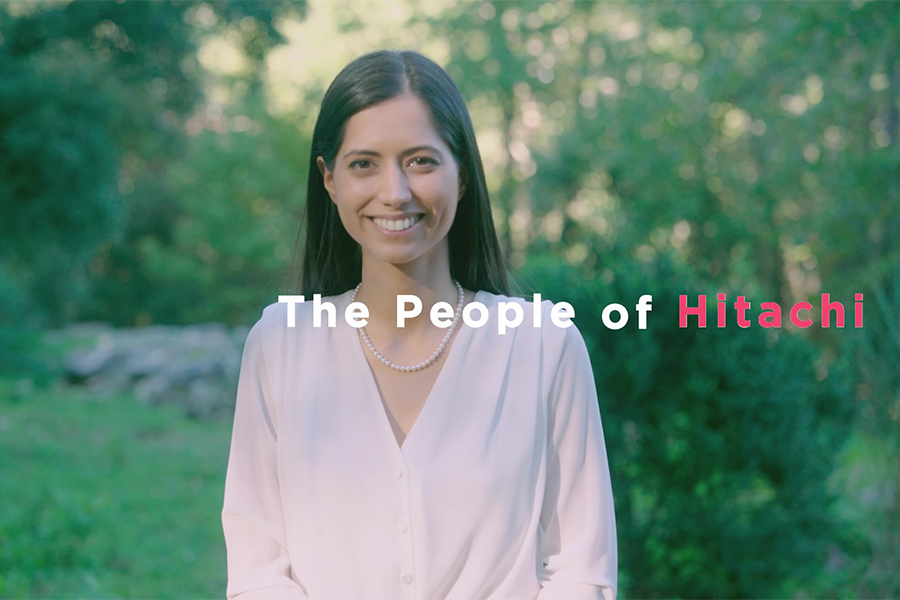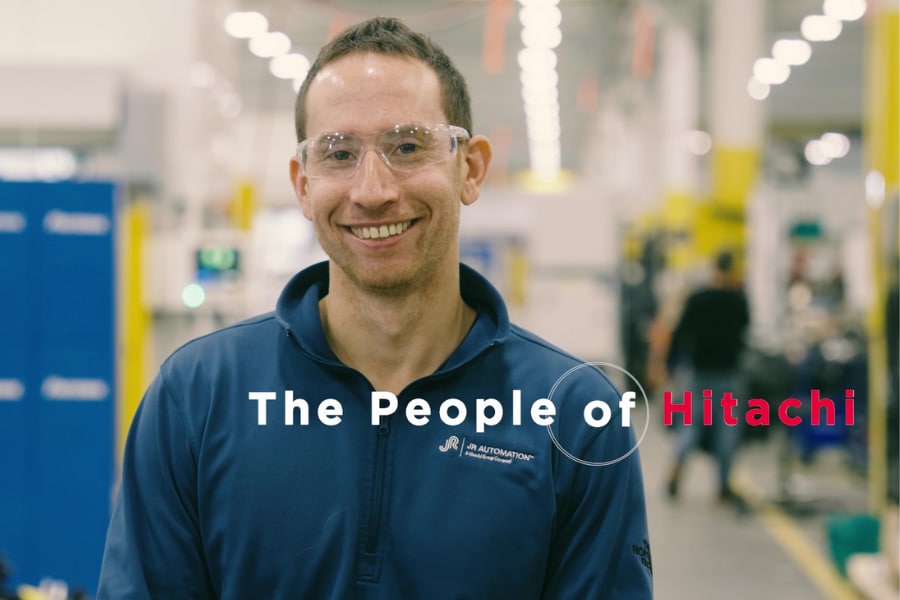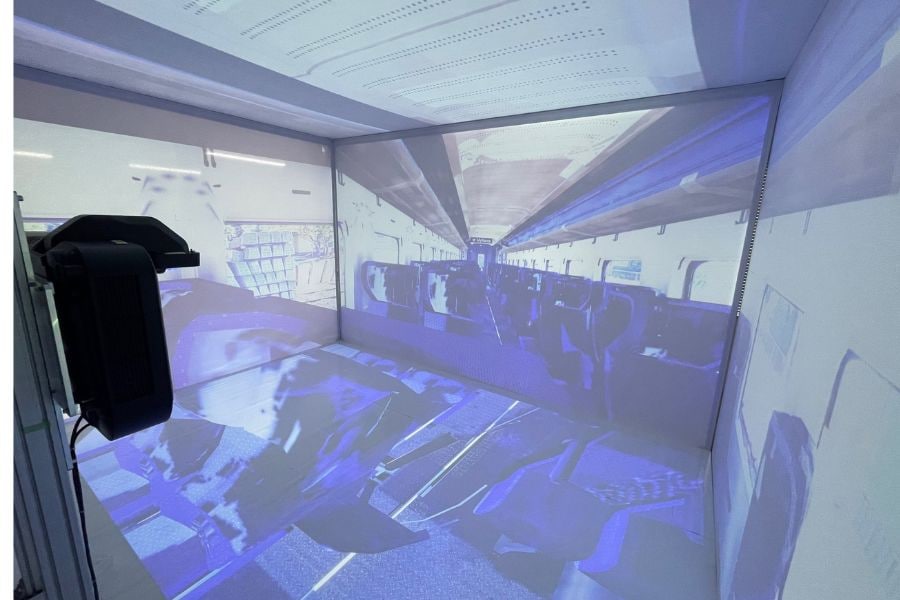The People of Hitachi: Leader in the Development of Europe's First Tribrid Train, Achieving a 50% Reduction in CO2 Emissions
Feb. 20, 2024
Hidenobu Mori
In efforts to achieve a sustainable society, railways, being an environmentally friendly mode of transportation, are gaining prominence. Hitachi Rail, based in Europe and leader in innovation through the development of railway vehicles, has developed “Blues” for Trenitalia (Italian State Railways Group – the largest railway operator in Italy). “Blues” is the first vehicle in Europe to have three different power sources, and it has garnered significant attention.
Cosimo Li Greci, a project manager at the company, led the development of this vehicle, which can reduce CO2 emissions by 50% compared to existing diesel vehicles.
“I am proud to be involved in a project that contributes to the realization of a sustainable society,” said Cosimo, and we had the opportunity to hear more of his thoughts on the project.
Contributing to Solving Environmental Issues and Improving People's Lives
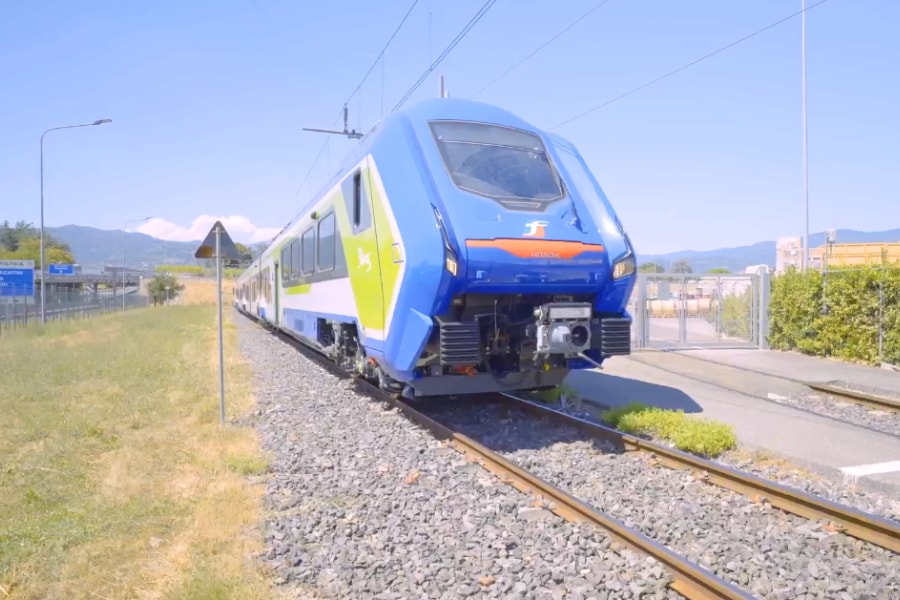
Cosimo, who was born in Palermo, Sicily, majored in mechanical engineering at university. Italy is known for its bustling automobile industry among others, and initially, Cosimo too had a strong interest in the automotive sector. However, during his university years, he encountered various aspects of the railway industry and gradually became fascinated by its potential.
“I was intrigued by the railway's significant transformation from a technical perspective, recognizing its potential for broad growth. Its eco-friendliness also resonated with me, and I was eager to contribute to solutions that not only reduce congestion but that are also safe and reliable.”
Cosimo graduated from university in 2006 and worked for an engineering consulting firm. As a railway consultant, he gained experience on several projects before joining Hitachi Rail in 2018.
“I was very pleased to join the Hitachi Group, a leading global technology company committed to contributing to society through technology.”
Appointed as Project Manager
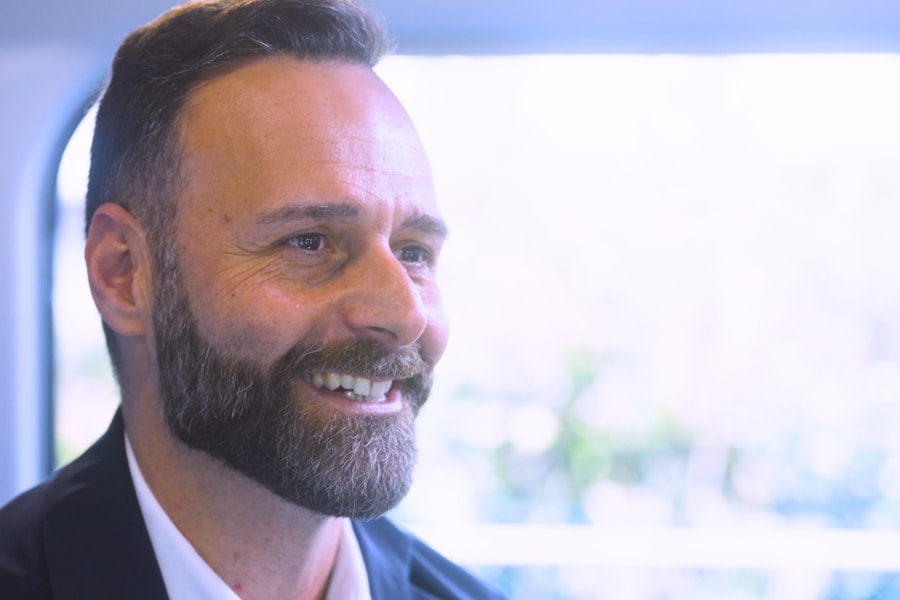
Upon joining Hitachi Rail, Cosimo's first task was working on a project for “Rock,” a double-decker vehicle designed for Trenitalia. His task was to manage, in close cooperation with the team members, the entire homologation process, ensuring the train met all legal, technical, and safety requirements for passenger operations. Additionally, he was responsible for managing the validation plan and coordinating with infrastructure operators.
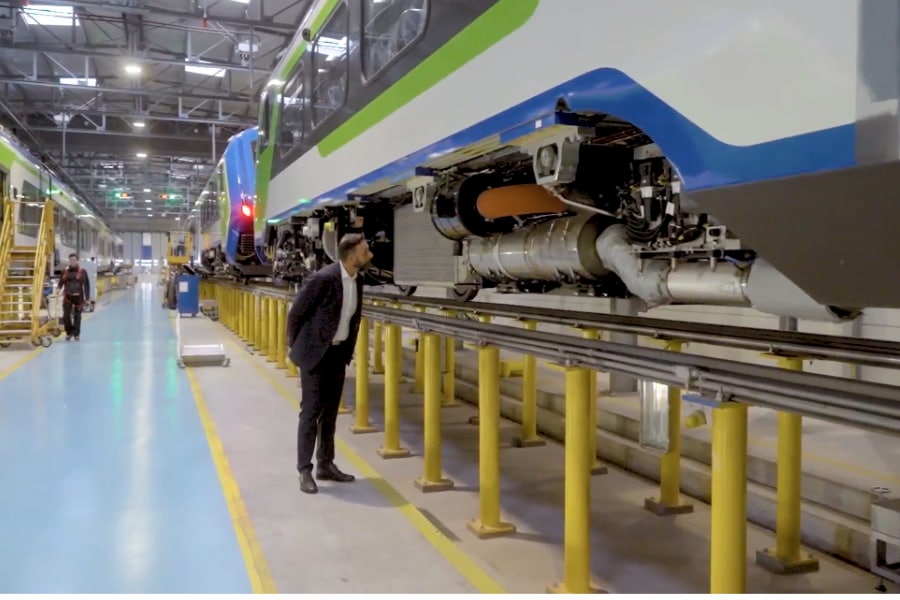
“Our goal was to obtain homologation as scheduled and to deliver accordingly. Thanks to the united efforts of our team members in Italy and Japan, we successfully delivered the train a month ahead of schedule. I also want to mention that within just two years, we delivered the first 100 trains. This was undoubtedly possible due to tremendous team effort and meticulous planning.”
Cosimo's performance on the Rock project was highly valued within the company, and in 2021, he began his involvement with Blues. The project started in 2017, and by the end of 2018, Hitachi Rail and Trenitalia had finalized a contract for the supply of up to 135 train sets, along with 15 years of maintenance.
Following this, Cosimo was appointed as the project manager to oversee the execution of the plan, from completion of the concept design to delivery of the trains.
Achieved Environmentally and Passenger-Friendly Train
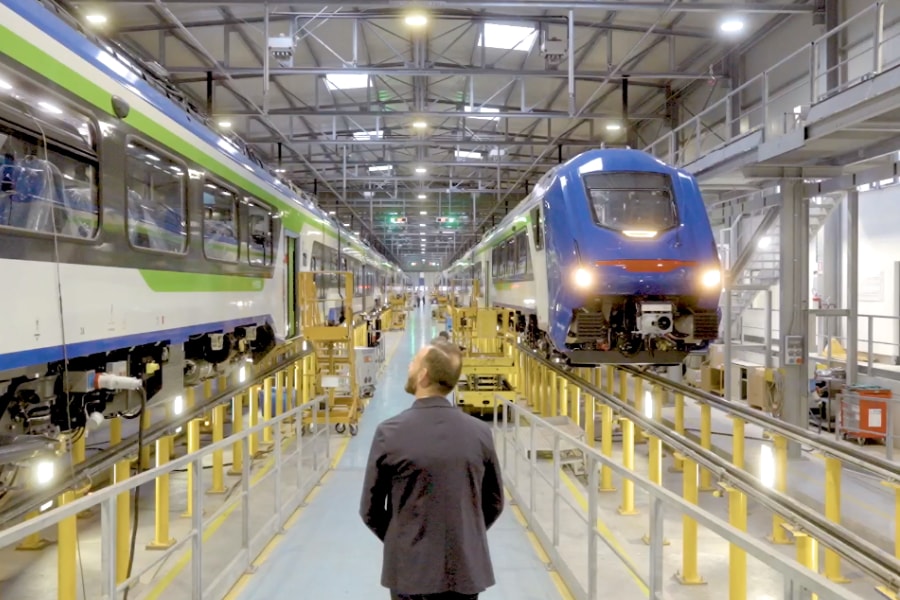
“The Blues train represents a significant technological challenge, as it is the first-ever tribrid train to enter passenger service in Europe. This train is equipped with cutting-edge technology, ushering in a new generation of transportation.”
The three power sources include electricity, batteries, and a diesel engine. On electrified routes, it uses pantographs to draw power from the overhead lines. However, when it moves to non-electrified lines, usually smaller regional routes, a combination of battery and diesel power takes over. When it is near a station, the batteries power the train completely, eliminating emissions including harmful NOx and reducing noise pollution. The battery is able to recharge while the train is in operation, both in diesel and electric mode.
“In Europe, approximately 40% of railways are not electrified, and there are still many diesel-powered trains in operation. To achieve a sustainable society through decarbonization, battery-powered trains are indispensable. The hybrid system, which can switch the power source depending on the running conditions, was a system we were eager to create. In addition, we have also taken measures to reduce environmental impact at using materials for the car body, which can be recycled.”
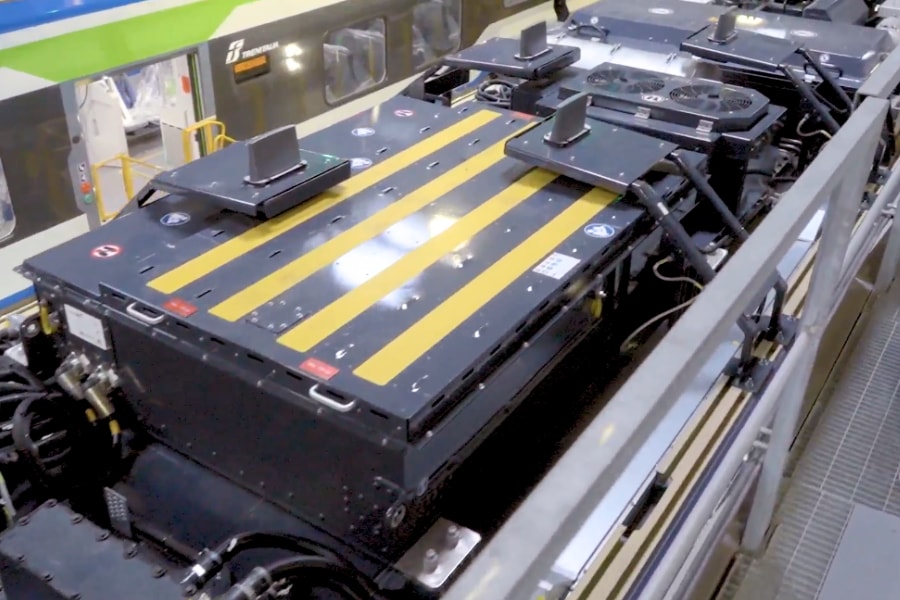
Furthermore, Blues is built with attention to passenger safety and comfort, as well as the surrounding environment.
“It is equipped with security cameras to ensure passenger safety. Additionally, spacious windows are designed to make the interior brighter. Furthermore, by using the battery during departure and arrival at stations, noise in the vicinity of stations is reduced. We aimed to create a train vehicle that is friendly to both the environment and passengers.”
Overcoming Challenges Together as One Team
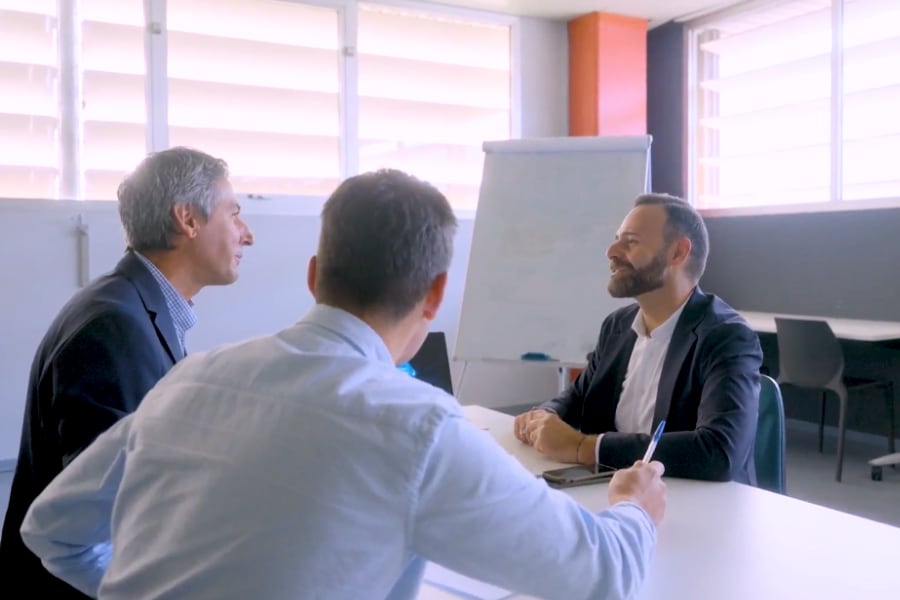
Cosimo was responsible for all aspects of the project, including managing the various project topics in the development of Blues, meeting contractual and delivery deadlines, and conforming to quality standards. The project involved an engineering team responsible for the technical aspects, a support team regarding quality, planners to develop and manage the planning, and experts in purchasing and procurement activities.
In the collaboration of diverse individuals from different locations such as Italy and Japan, “the spirit of teamwork is important,” Cosimo emphasizes.
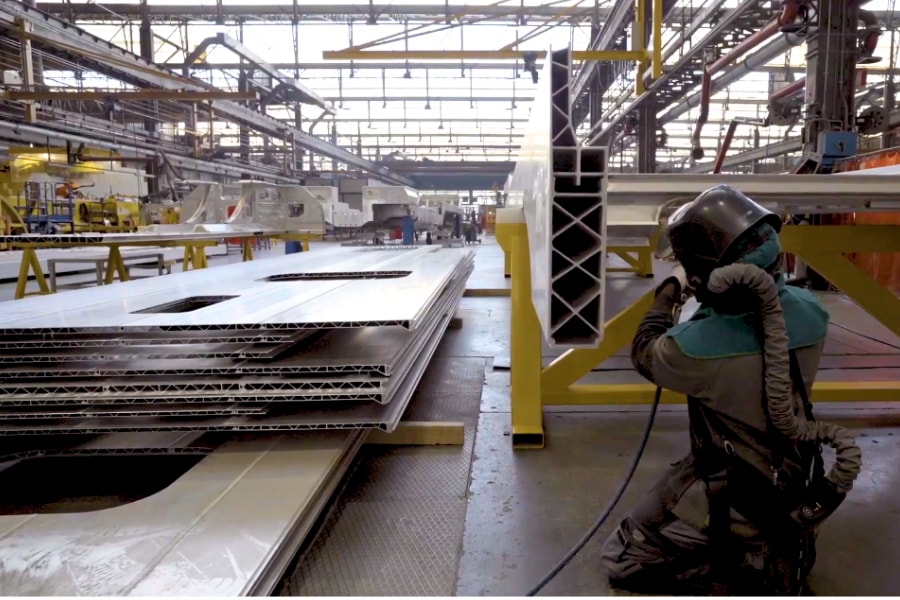
“In our team, we hold regular meetings to actively discuss topics, plans, and goals in order to strengthen collaboration. We value cooperation with all stakeholders, and therefore, we maintain an open and friendly environment.”
There were many challenges to project execution, including technical requirements, compliance with regulations to obtain type certification, and the impact of the COVID-19 outbreak. However, Cosimo and his team overcame these difficulties through teamwork.
“Despite unprecedented challenges, we united as a team to deliver the Blues project to our customers as planned. For example, we respected COVID-19 guidelines and introduced new tools and methods to ensure social distancing among assembly workers.”
Make People Happy through Technological Development
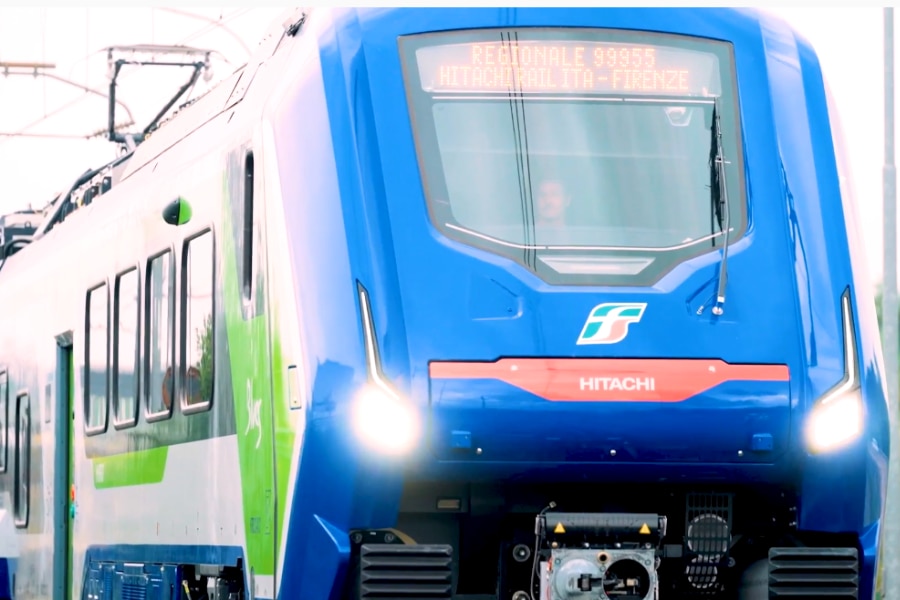
By December 2023, a total of 46 sets of Blues train had been delivered to Trenitalia. Currently, it is in use for various applications such as commuter trains in several regions of Italy, including Tuscany, Lazio, Sardinia, Friuli Venezia Giulia and Calabria.
“When I first got on Blues, I felt incredibly excited. I still remember how excited I was to see that the blueprint had actually taken shape and that we were prepared to carry people on board. European countries are striving for decarbonization in transportation, and I believe that delivering Blues to various countries can contribute to that goal.”
When asked about the future, Cosimo responded with passion, saying the following.
“Another important goal in my work is to make people happy. Nothing would make us happier than to bring a little happiness into people's daily lives through the trains we build. We believe that our trains must contribute to the achievement of a sustainable society. I would like to continue to be deeply involved in projects to further advance our trains through continued technological development.”

